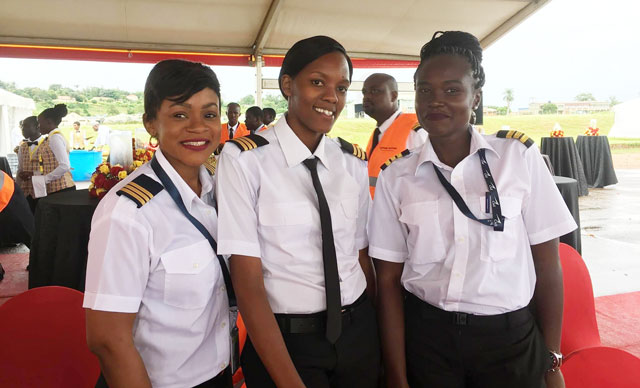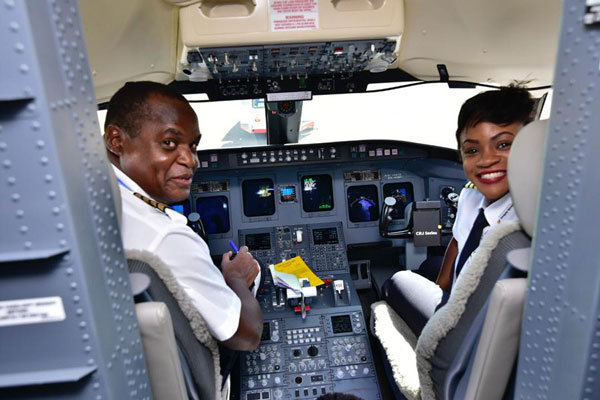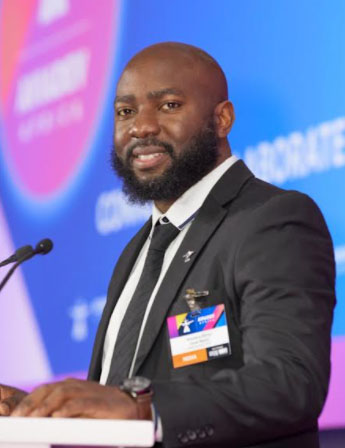
It is often said that men apply for a job when they meet only 60% of the qualifications, but women apply only if they meet 100% of them
COMMENT | DEREK NSEKO | Only seven of the top 100 airlines in the world are led by female CEOs, according to a survey conducted by Flight Global. And this represents a peak figure from the past 5 years of research.
While women are better educated and increasingly being added to the global labour force, their representation in top positions in business still lags behind that of men.
Globally, Women head only 20% of Companies and according to the International Labour Organization, the bigger the company, the less likely we are to see women at the helm. The airline sector is no different and the African aviation industry represents even more damning figures.
Today, a large percentage of companies have diversity and inclusion policies in place, however not all organizations are walking the talk.
Uganda Airlines has not backed that trend and is showing unprecedented leadership in this area across the board. Recent appointments mean that the airline’s leadership from Board Chairperson to CEO, Commercial and Communications directors are all female. Clearly when the top executive of a company is a woman, that company is likely to have a larger share of female employees.
On the technical side, where only five percent of airlines pilots globally are female, the airline is represented by a female demographic of 8.3%.

Chief Pilot Mike Etiang believes a diverse crew is great for building larger mindset in the company as it facilitates greater flow of broad experiences and insights. Commenting on his gender diversity philosophy for a published article last year, he said:
“As we seek to build a National Airline with international reach and given the large number of Ugandans in the diaspora many of who are in intermarriages it’s good for us to be broad minded in our approach to people, different cultures and knowledge. As for females I have always encouraged women pilots and take pride in their success after all I am a father of two girls plus one boy,”

Unfortunately, the gender pay gap does not disappear when women move into managerial roles. And it remains a persistent indicator of inequality between men and women in the world of work.
The underlying perception driven by this inequality was exemplified by Uganda’s parliamentary Committee on Commissions Statutory Authorities and State Enterprises (COSASE) while grilling current Uganda Airlines CEO, Jenifer Bamuturaki on the size of her pay. While everyone was up in arms about a projected 87 Million salary, no one seemed to have a problem with her male predecessor’s 127 million. The current CEO reportedly earns much less.
It is often said that men apply for a job when they meet only 60% of the qualifications, but women apply only if they meet 100% of them. Another way to put that is “Men are confident about their ability at 60%, but women don’t feel confident until they’ve checked off each item on the list.”
The true reason according to a survey by the Havard Business Revenue – “I didn’t think they would hire me since I didn’t meet the qualifications, and I didn’t want to waste my time and energy.”
In other words, people who weren’t applying believed they needed the qualifications not to do the job well, but to be hired in the first place. They thought that the required qualifications were quite simply that…, required qualifications. They didn’t see the hiring process as one where advocacy, relationships, or a creative approach to framing one’s expertise could overcome not having the skills and experiences outlined in the job qualifications. Ring a bell?
Research shows that when enterprises have an inclusive business culture and inclusive policies, the predicted probability of achieving:
- increased profitability and productivity is 63%
- enhanced ability to attract and retain talent is 60%
- greater creativity innovation and openness is 59%
- enhanced company reputation is 58%
- better ability to gauge consumer interest and demand is 38%
When boards are gender-balanced, companies are almost 20% more likely to have enhanced business outcomes. Ultimately, diversity contributes to competitive business performance.
Only time will tell what the performance outcomes of Uganda Airlines’ female driven executive workforce will be but the airline is to be applauded for taking a deliberate approach to enhancing an inclusive culture.
********
 The writer, Derek Nseko is an aviation expert, a qualified commercial pilot and managing director at iFly Global. He is the founder of Airspace Africa an online publication dedicated to African aviation.
The writer, Derek Nseko is an aviation expert, a qualified commercial pilot and managing director at iFly Global. He is the founder of Airspace Africa an online publication dedicated to African aviation.
derek@airspace-africa.com twitter: @av8r_derek
 The Independent Uganda: You get the Truth we Pay the Price
The Independent Uganda: You get the Truth we Pay the Price



